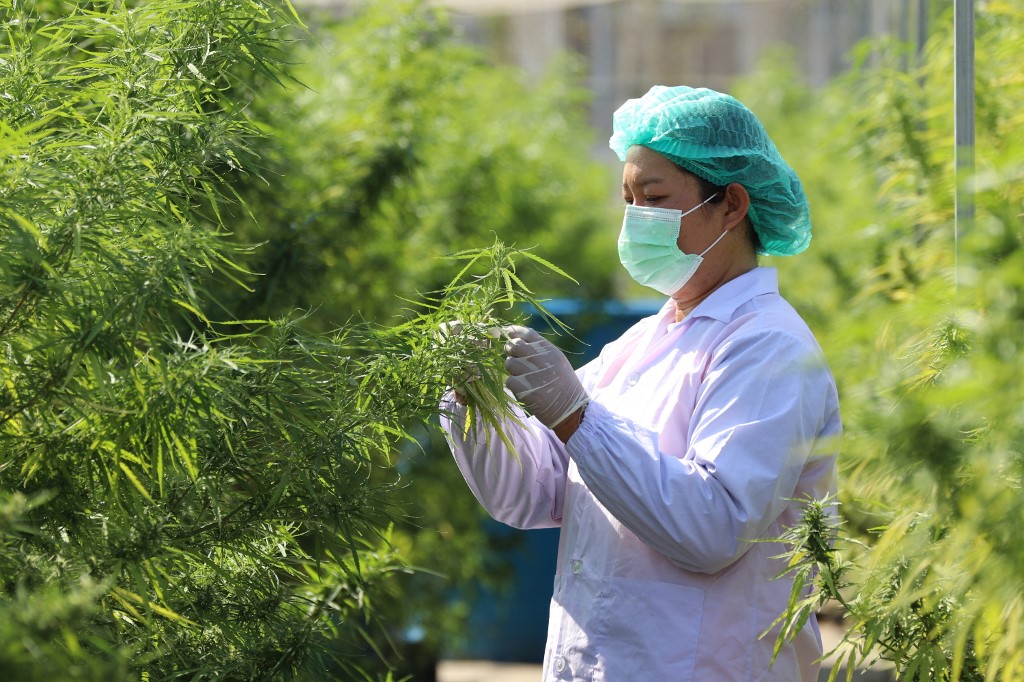Learning
Cannabis And Thailand: Everything You Need to Know

The expansion of the cannabis industry and its popularity worldwide didn’t spare Thailand and its people. Like other public issues and policies, the population is divided on the type of legislation required to regulate the cultivation and use of cannabis within the country.
One group agrees with legalization based on the medical benefits of cannabis extract and safety compared with conventional drugs. On the other hand, some raised concerns about the higher level of crimes and violence associated with the sales and distribution of marijuana.
Ultimately, the government had the last say and had to weigh the positive aspects of the herb against its drawback for the country.
Cannabis Legislation in Thailand
Hemp and cannabis are category 5 narcotics according to the classification of the Narcotics Act of 1979. Therefore, any activities like cultivating cannabis in grow tents, selling the buds, or its derivatives had seen strict restrictions until the recent spike to cannabis legalization due to its therapeutic value. The first significant breakthrough for cannabis came as Amendment (No.7) to the Narcotics Act, February 19, 2019.
Here the main concerns were the presence of two primary cannabinoids in the cannabis and cannabis-derived products, namely, cannabidiol (CBD) and tetrahydrocannabinol (THC). Per the recent legal amendments, the definition of cannabis is Cannabis sativa L. subsp. Indica, and hemp as Cannabis sativa L. subsp. Sativa. In this case, the herb should have at most 1.0% THC dry weight in the buds and leaves.
The primary body responsible for regulating cannabis and hemp products is the Thai Food and Drug Administration (Thai FDA). Thai FDA is a government institution supervised by the Ministry of Public Health. It works with the Narcotics Control Committee to grant and oversee licenses and control marketing related to these products. Apart from this, many national policy-making committees on cannabis have representatives of the Thai FDA on their boards.
Lawful Use of Cannabis in Thailand

In 2019, the Narcotic Addict Rehabilitation Act, B.E 2545 (2002) (“NAR”) was amended. This amendment enables the Thais to use cannabis for its medical benefits legally. But it still classified cannabis as a narcotic Schedule 5. Thus, prohibiting the plant’s production, distribution, sell, except for research or medical purposes.
However, a new announcement was made on December 15, 2020, decriminalized some parts of cannabis, meaning they were no longer considered narcotic Schedule 5. Some of these parts of the cannabis plant include:
- Bark
- Fiber
- Trunk
- Root
- Branch
- Leave without blossom or bud
- Extract of CBD and THC (less than 0.2%)
- Post-extraction residues containing CBD and THC (less than 0.2%)
For these exceptions, there’s one essential caveat you must bear in mind; all parts of cannabis intended for medical or research use must come from Thailand, legally cultivated. Remember, the key here is ‘legally cultivated in Thailand.’
Cannabis Production, Export, and Import

At present, the laws in Thailand regulate the growth of cannabis. Even though certain parts of the plant are no longer under the narcotic Schedule 5 classification, this doesn’t mean anyone can freely cultivate cannabis in their backyard. The NAR still regulates the growing of cannabis.
More specifically, section 26/2 of the NAR has the mandate to restrict the importation, production, and exportation of cannabis within Thailand unless you lawfully obtain a license. Entities that receive licenses can legally produce cannabis by the Thai FDA and Narcotics Control Committee regulations.
But the authoritative has stringent demands and requirements before they issue licenses. Also, only a limited group can apply for this license. Applicants for the cannabis license in Thailand could be medical organizations, universities, government agencies, agricultural operators, or pharmacy professionals. Apart from these, community enterprise groups or any parties stated by section 26/5 of the NAR can also apply for a license.
Cannabis Importation
This means the importation of any part of weed into Thailand is also illegal. That’s because the amendment says parts removed from the narcotic Schedule 5 can only come from legal production in the country. Hence, the importation of fiber, bark, branch, trunk, or any other cannabis parts included in the announcement would be an illegal transaction unless you previously obtained specific authorization from the appropriate parties.
The Debate on Full Legalization

The Thai government has taken a defensive stance toward stakeholders in Thailand, particularly in the first stage of cannabis legalization. This stage of the legalization of weed production and sale in the country will extend from now to 2024. During this period of first stage licenses of cannabis, stage agencies will receive these licenses.
As such, a group of farmers or a private entity can only become eligible to obtain cannabis licenses if they join operational forces with a state agency. This requirement doesn’t apply only to the framework of hemp licensing in which a private entity could use or hold an individual hemp license.
Wrapping up
If the government allows the legal use of cannabis for both medicinal and recreational purposes, private cannabis businesses will benefit from higher profits. That’s because there will be fewer restrictions on production and quality control. Seeing how the complete legalization of marijuana has affected other countries, this adaptable plant could be pretty lucrative for Thailand, rivaling crops like rice, rubber, tapioca, and sugarcane, mainly because Thailand is primarily an agrarian economy.
References:
https://www.fda.moph.go.th/sites/Narcotics/en/Pages/Main.aspx
https://www.researchgate.net/publication/235960779_Narcotic_Addict_Rehabilitation_Act_BE_2545





























